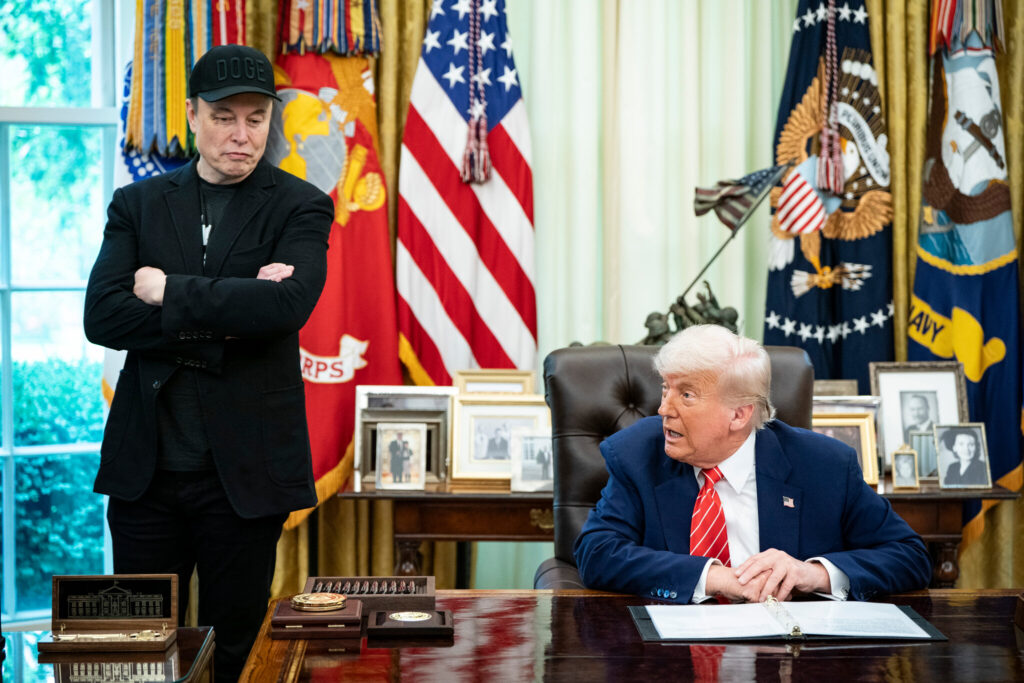President Donald Trump has achieved a pivotal legislative win after a narrow 218–214 vote in the House of Representatives approved his comprehensive tax and spending package. The legislation, labelled the “One Big Beautiful Bill” by its backers, now heads to his desk for signing during a July 4 White House ceremony. It extends Trump-era tax cuts from 2017, eliminates income tax on tips and overtime, and includes a significant rise in deficit limit to avert a debt ceiling crisis.
The legislation offsets these measures by slashing social safety net programmes. It mandates work requirements for able-bodied Medicaid recipients and cuts approximately $185 billion from SNAP food assistance, alongside trimming federal healthcare spending by at least $1 trillion. According to non‑partisan Congressional Budget Office forecasts, around 12 million Americans risk losing health insurance by 2034, and the federal deficit may swell by $3.3–$4 trillion over the next decade.
Republican leaders hail the legislation as a cornerstone of Trump’s second‑term promises. Speaker Mike Johnson praised it for delivering “one big, beautiful bill” that reinforces border security, military strength and economic growth. Senator J. D. Vance cast the tie‑breaking vote in the Senate, permitting the reconciliation process to bypass Democratic filibusters. President Trump describes it as foundational for a “new era” with growth unleashed by permanent tax cuts.
Opposition has been fierce among Democrats, who unanimously rejected the bill. Hakeem Jeffries delivered an eight-hour, 44‑minute speech condemning it as the “one big, ugly bill” that benefits the wealthy while jeopardising vulnerable communities. Progressive voices warn of “COVID‑style healthcare chaos,” cautioning that millions could lose coverage and emergency services face a surge in demand.
Within the GOP, two Republicans—Thomas Massie and Brian Fitzpatrick—defied party lines, citing fiscal concerns and the scope of Medicaid cuts. Moderate Republicans had backed away over fears of burdening rural hospitals through new Medicaid co‑payments and limiting provider taxes. Conservatives, meanwhile, rallied behind the expanded tax breaks for tips, overtime and seniors, arguing these bolster working‑class families.
Fiscal watchdogs and economists express unease. The CBO and the Center for Budget and Policy Priorities underscore risks to low‑income households, projecting millions will lose critical benefits over the next decade. States dependent on federal funding warn of increasing strain on hospitals and safety net services due to cuts and new administrative mandates.
Polling data suggests broad public disapproval, with close to half of Americans opposing the measure and just under a third in favour. Experts note that similar ideological reconciliation bills have historically triggered mid‑term electoral backlash for the governing party, raising questions about potential political ramifications for Republicans.
Despite criticism, the legislation secures allocations for immigration enforcement—about $45 billion for ICE detention, $14 billion for deportations, and a $50 billion contribution to the border wall—as well as a large boost to defence spending, including funding for the proposed “Golden Dome” missile system.
Business groups largely endorsed the package, with the Business Roundtable calling it a “monumental victory” expected to invigorate investment and innovation. Conversely, clean‑energy advocates warn that withdrawal of Biden-era tax credits will impede green initiatives and investment in renewable technology.
Midwestern politicians have reacted sharply. Michigan Governor Gretchen Whitmer accused the federal Republicans of “raising grocery and utility bills,” threatening Medicaid coverage for 15,000 residents, and criticised local GOP representatives for undermining constituents. In contrast, Michigan Republicans celebrated the bill, emphasising tax cuts on overtime, tips, and measures targeted at China‑affiliated companies from securing green energy credits.
The House’s passage followed tense negotiations that stretched into the early hours; a marathon eight‑hour vote session forced Speaker Johnson to seal concessions and secure hard‑liner support. Trump himself campaigned intensively in the White House, reportedly blending threats of primary challenges and promises of executive orders to pressure hold‑out Republicans.
With Trump’s signature expected today, the legislation marks a high‑stakes gamble that reshapes fiscal policy and domestic priorities. However, its deep cuts to social programmes and escalating deficit raise questions about its sustainability and political impact ahead of mid‑term elections.




 Alliance Strain Looms Over UP Panchayat Polls
Alliance Strain Looms Over UP Panchayat Polls 